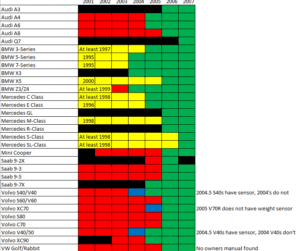Supreme Court decision affects insurers and choice-of-law clauses

In a unanimous decision, the U.S. Supreme Court has ruled that an insurer’s choice-of-law clause in a marine insurance policy is enforceable and cannot be disregarded in favor of another state’s policy. The case was Great Lakes Insurance SE v. Raiders Retreat Realty Co., LLC and is significant because maritime contracts are presumptively enforceable under federal maritime law.
Great Lakes Insurance was organized in Germany and is headquartered in the U.K. Raiders Realty is headquartered in Pennsylvania and when the parties entered into the contract for coverage, they selected New York law to govern any future disputes that could arise. A Raiders boat ran aground in Ft. Lauderdale, Florida, and Great Lakes denied coverage of the claim under a breach of the insurance contract. Great Lakes contended that Raiders had breached the contract because it failed to maintain the boat’s fire-suppression system even though that failure did not contribute to the accident. The breach, in essence, voided the contract in its entirety.
Great Lakes sought declaratory relief from Raiders in the U.S. District Court for the Eastern District of Pennsylvania. In return, Raiders pursued contract claims under Pennsylvania law, however, Great Lakes maintained that Pennsylvania law did not apply in the dispute, but New York law did under the choice-of-law provision included in the contract.
The District Court agreed with Great Lakes and upheld the choice-of-law provision as valid and enforceable. However, the U.S. Court of Appeals for the Third Circuit vacated that judgment, ruling that while choice-of-law provisions are enforceable in maritime contracts under federal maritime law, the court ruled that it “must yield to a strong public policy of the State in which suit is brought,” which in this case was Pennsylvania.
The Court of Appeals remanded the case to the District Court to consider if applying New York contract law would violate Pennsylvania’s public policy and if Pennsylvania law should ultimately apply. A writ of certiorari (request for further review) to the Supreme Court was filed by The Goldman Maritime Law Group, which allowed the case to be heard on appeal from the Third Circuit.
In its ruling, the Supreme Court looked at “whether there is an established federal maritime rule regarding the enforceability of choice-of-law provisions. ‘The answer is yes.'” The Court’s opinion goes on to say that “it is no injustice to resolve disputes under the law that parties have agreed to be bound by.”
Justice Brett Kavanaugh delivered the opinion for the Supreme Court and Justice Clarence Thomas filed a concurring opinion.
The American Institute of Marine Underwriters (AIMU) filed an amicus brief that was cited twice in the Supreme Court decision and highlighted that choice-of-law provisions help to “reduce legal uncertainty” and enable insurance companies to expand the availability of marine insurance and usually at a lower cost.
In a written statement, John Miklus, president of AIMU said, “As well stated in the Court’s opinion, this decision will enable marine insurers to better assess risk. By enforcing an insurance policy’s choice-of-law provisions in jurisdictions that are well developed, known, and regarded, the Court recognizes that insurers can lower the price and expand the availability of marine insurance.”
Michael Goldman of The Goldman Maritime Law Group told Digital Insurance in a written statement, “This decision means the restoration of some measure of uniformity in marine insurance law. Uniformity means the predictable enforcement of the same terms to every sort of risk; pleasure vessels in South Florida, container ships in Washington, and LNG tankers in the Gulf. Predictability means accurate risk assessment for underwriters, lower litigation costs for claims handlers, and reduced premiums for vessel owners.”




